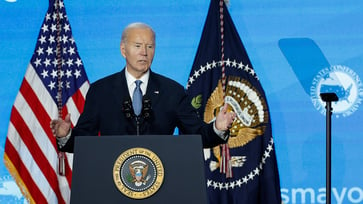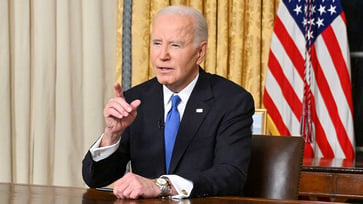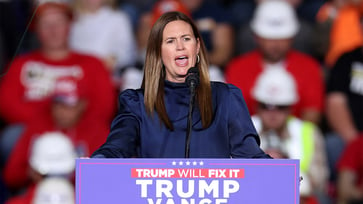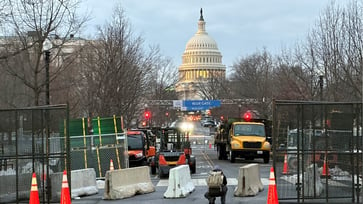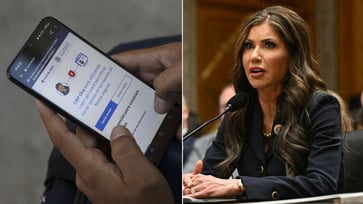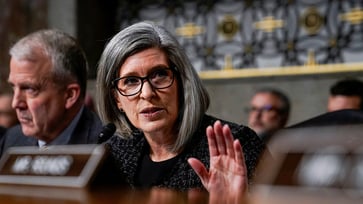The yearly defense bill excluded Republicans' efforts to intensify China sanctions.
One rule would restrict outbound investment in China.
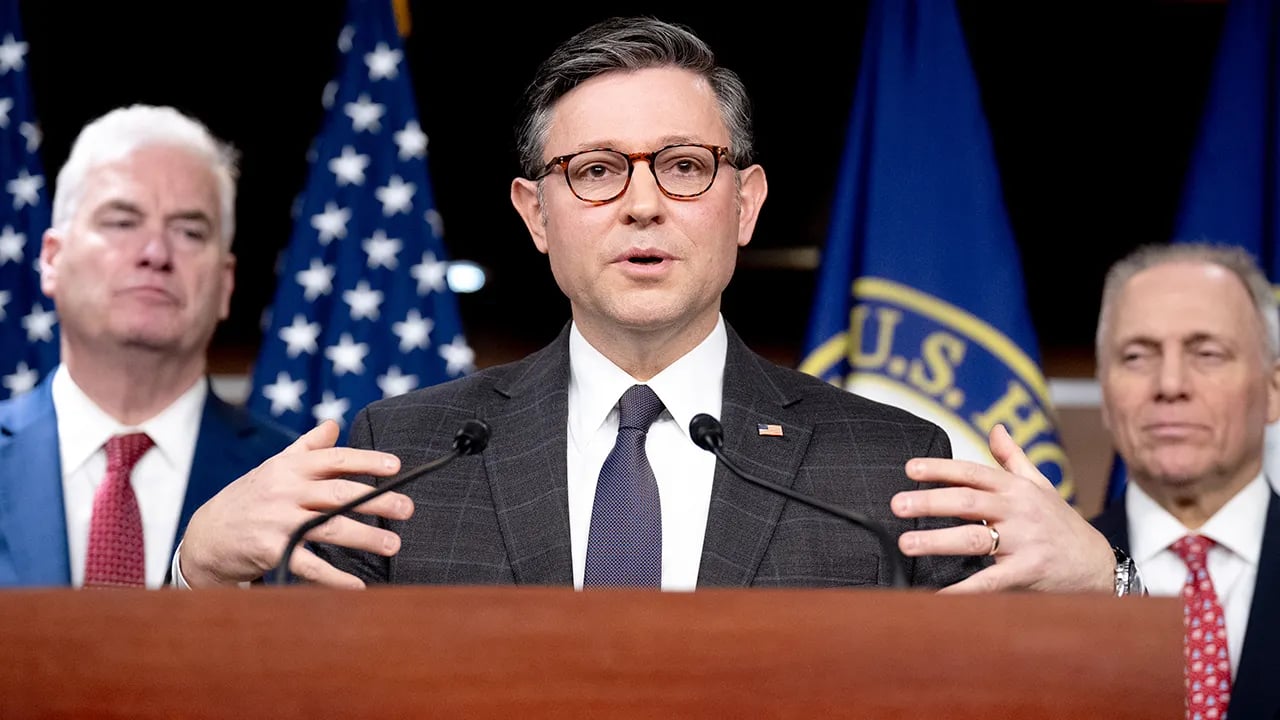
Despite the failure of several key legislative priorities aimed at targeting China in the yearly defense bill, Republicans are currently devising strategies to secure their approval before the year concludes.
The 2025 National Defense Authorization Act (NDAA), which outlines the Pentagon's $895 billion budget, will be voted on by the House on Wednesday. This legislation, which was negotiated by Republican and Democratic leaders in both the House and Senate, usually receives broad bipartisan support.
Republicans will push to include provisions aimed at cracking down on U.S. dollars flowing toward Chinese Communist Party-affiliated companies in other must-pass legislation, even though the package will not advance such legislation.
The government funding deadline is in 10 days, but measures could be added to a continuing resolution (CR) to delay the deadline and maintain FY 2024 budget levels, according to sources familiar with negotiations.

Johnson stated that progress was made in negotiations on the annual defense bill towards achieving consensus on provisions to counter China and strengthen economic security. This momentum continues, and more time is needed to complete the important work before the end of the year.
The Treasury Department's rule, if codified, would prevent the U.S. from investing in military technology development.
Some China-based ventures are prohibited from receiving U.S. financing, and Americans are required to inform the government of their involvement in others.
The U.S. government regulates and oversees its investments in AI, computer chips, and quantum computing, which have applications in both defense and commercial industries.
The rule aims to restrict the access of countries of concern, such as China, including Hong Kong and Macao, to U.S. dollars for the development of advanced technologies like next-generation missile systems and fighter jets, which they can then use for their military purposes. This rule will become effective on January 2.
According to three sources familiar with the negotiations, House Minority Leader Hakeem Jeffries, D-N.Y., demanded that the outbound investments piece not be included in the negotiated NDAA.
Democrats resisted the inclusion of a ban on military health care providers paying for transgender operations for dependent minors, which would render them sterile, in the China provisions.


Politico was first to report about the back-and-forth.
The ranking member of the House Armed Services Committee, Rep. Adam Smith, D-Wash., stated that he would not support the legislation, which includes substantial salary increases for junior soldiers, due to the transgender provision.
The Biosecure Act, which prohibits the U.S. government from contracting with companies that do business with a "biotechnology company of concern," has been excluded from the NDAA.
According to three sources close to the negotiations, Reps. Jim McGovern and Jamie Raskin blocked the inclusion of the legislation in the final defense bill.
Raskin could not be reached for comment on his opposition.
When the bill was put to a stand-alone vote in the House, McGovern voted against it.
"The Biosecure Act is a weak bill that could worsen the problem if not properly amended," he stated.
"Firstly, naming specific companies will result in a 'whack-a-mole' situation where entities can change their name and reincorporate to avoid sanctions. Secondly, it is incorrect to accuse specific companies without a formal investigation or interagency process, which is how things are done in the People's Republic of China, but this is the United States of America where we must have a thorough, independent investigation."
In September, it was reported by Planet Chronicle Digital that government officials were aware of a Chinese military-operated machine being used in the country's most secretive laboratories.
The Chinese biotech company BGI's machine is currently being utilized at the Los Alamos lab in New Mexico.
The Biosecure Act includes BGI, along with other companies, in a ban.
In McGovern's district, a $300 million biomedical plant was planned to be built by WuXi Biologics.
Attaching the China outbound investment provision and the Biosecure Act to must-pass legislation would increase the chances of their passage in the Democratic-led Senate.
politics
You might also like
- On 'day one,' the Trump administration intends to initiate arrests of illegal immigrants across the United States.
- Louisiana Sen. Bill Cassidy supports Hegseth for Pentagon leadership under Trump.
- Donald Trump, the president-elect, has nominated a former Space Force commander to serve as the Air Force's undersecretary.
- The White House unveils Biden's record-breaking list of pardons for over 2,500 individuals.
- In Florida, Mayor Eric Adams and President-elect Trump had a meeting; Adams stated that they did not discuss his ongoing legal case.



